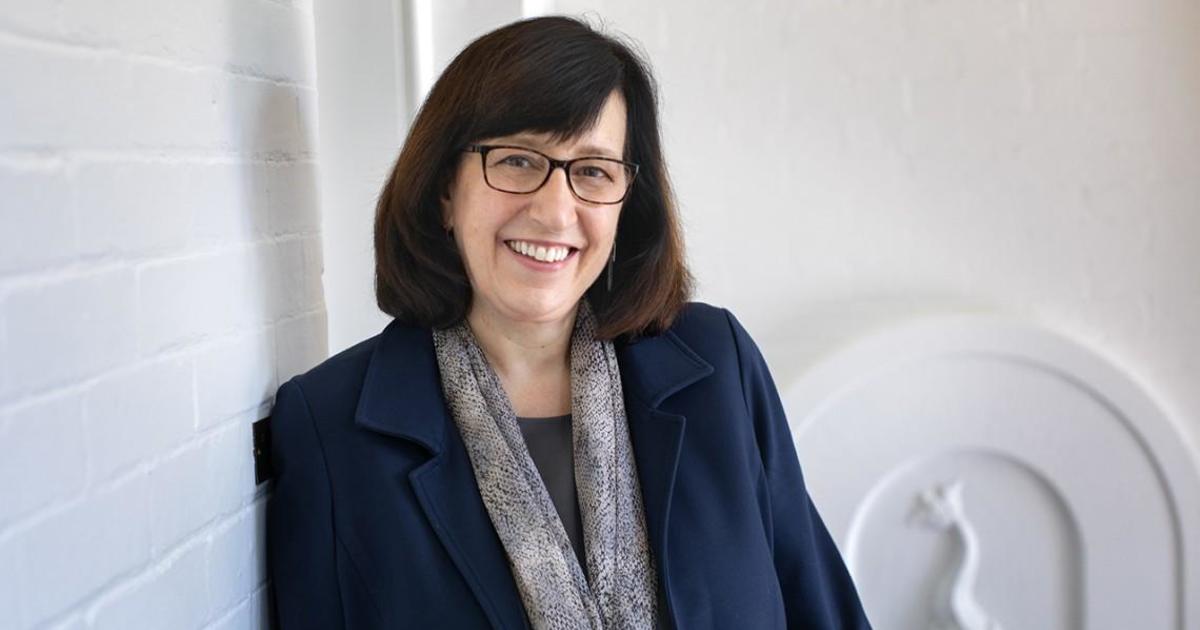Germany woefully behind with COVID vaccinations, and shortages only small part of an "unbelievable" problem
Berlin — The German government's coronavirus response has descended into chaos. Chancellor Angela Merkel was forced to rescind a last-minute order this week for a strict Easter lockdown — accepting there was no time to implement the measure despite rising infections.
It was just the latest misstep by her coalition government as it faces withering criticism for its handling of the pandemic, particularly its faltering vaccine rollout.
The need to boost inoculations is growing more urgent as a third wave of COVID-19 infections spreads across Germany. The head of the government's health agency warned on Friday that Germany could see as many as 100,000 new cases per day if the disease's spread isn't curbed.
Europe's largest economy, along with its European Union partners, has lagged far behind the U.K. and the U.S. when it comes to administering vaccinations. As of this week only about 10% of Germany's adult population had received at least one vaccine shot. That's compared to 55% in the U.K. and 25% in the U.S. Germany doesn't even make the list of the top-20 nations in terms of vaccination rates worldwide.
While the European Union is jostling with vaccine producers to get more doses, supply is far from the only factor behind Germany's low inoculation rate. Approximately 3.9 million doses of both the Oxford-AstraZeneca and Pfizer-BioNTech vaccines are sitting on shelves across the country, according to official statistics.
The country is also making slower progress when compared to other EU nations, which have received roughly the same amount of vaccines per-capita. Denmark and Estonia, for example, have already administered more than 160 doses per 1,000 inhabitants. Germany is below the European average at 125 per 1,000.
Defenders of Germany's approach point out that a portion of the unused vaccine supply has been deliberately withheld to provide second doses. But the federal government expanded the recommended number of weeks between doses in mid-February, partially to address that issue.
The devolved nature of the rollout has made it difficult to pin the blame on any one entity. Germany's 16 federal states are responsible for organizing vaccinations in their own jurisdictions. Under pressure after her party failed to win two regional elections earlier this month, Merkel this week appealed to state administrators to avoid unnecessary bureaucracy, which she said was hampering the vaccine drive.
Dr. Joachim Wunderlich, a cardiologist who has helped staff a local vaccination center in Berlin, told CBS News that the bureaucratic process for people to get vaccinated in Germany was "unbelievable," and the amount of paperwork involved, "insane."
"You can't expect an over-80-year-old to fill out 10 pages and numerous consent forms and ask them to call a hotline to make an appointment," he said. "And then they risk being turned away because they forgot some forms at home."
Public confidence in the AstraZeneca vaccine, in particular, has also been a huge problem. The government, along with several other EU nations, suspended use of the shot for a few days earlier this month after reports that people who'd had it developed blot clots.
Even after the European Medicines Agency stated clearly following a data review that the vaccine was safe and that the benefits of taking it outweighed any risks, health professionals across Germany said many of their patients were still reluctant to book appointments for the shot.
The blood clot fears came after Germany, again followed by some of its EU partners, initially refused to authorize use of the AstraZeneca vaccine for over-65s, citing a lack of empirical data from trials showing it was effective for that age group. That hesitancy came despite significant real-world evidence from the U.K., where the drug was already being administered to seniors, that it did help prevent severe disease.
With a few exceptions in remote areas, where doctors can offer vaccinations, only dedicated mass-vaccination centers and mobile units that visit nursing homes are currently authorized to administer the shots. Across the country, those facilities are still operating at just 67% of their capacity, which translates to roughly 100,000 unused appointment slots every day.
But Germany has still only given the greenlight to people over the age 80, and those with serious pre-existing conditions, to book appointments, leaving many younger people who would like to get a shot unable to take advantage of the excess capacity.
Jonas Schmidt-Chanasit, a virologist at the University of Hamburg, told CBS News that while prioritization was absolutely necessary, a little more flexibility would make Germany's inoculation drive much more efficient.
"At the moment, we are in the process of vaccinating the 80-year-olds and most vulnerable members of society, which is important from an ethical point of view. Keeping in mind the supply shortages, we need to stick to this prioritization for now, but the whole process needs to be quicker."
The government has promised to speed up the rollout by allowing all of Germany's general practitioners — family doctors or GPs as they're commonly known — to administer vaccines at their local practices.
"Germany has a well-functioning GP infrastructure. If they were to be included we could vaccinate at a much higher speed, and that's long overdue," said Schmidt-Chanasit.
Wunderlich agreed.
"I know my patients, I know their worries and their pre-existing conditions. I don't want them to call a hotline if they could just call their GP and be able to get the jab in my practice," he told CBS News. "The pandemic is daunting enough, bureaucracy and data protection laws shouldn't make it even worse."




